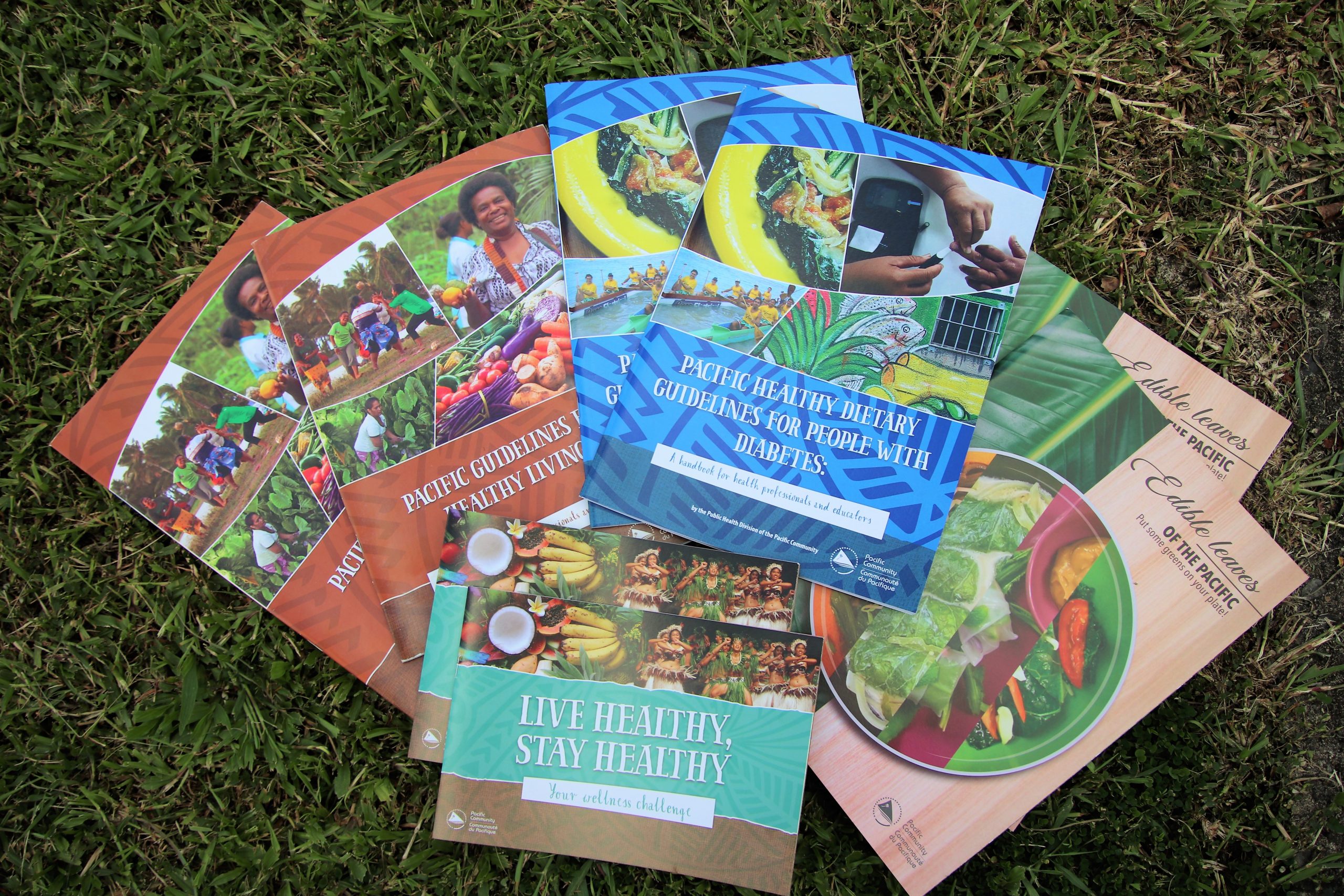According to the World Health Organization global health survey in 2016, 71% of deaths globally were due to non-communicable diseases (NCDs). In the Pacific, NCDs are the leading cause of deaths accounting for 75% of mortality. While this is worrying, the good news is that NCDs are preventable.
The COVID-19 pandemic and reports from health experts identified that persons living with NCDs such as diabetes, heart diseases, hypertension, chronic lung diseases and cancers were more vulnerable to becoming severely ill with COVID-19. While the region is on alert with its COVID-19 preparedness and response, it is important that there is a continuation of NCD prevention and control through a multi sectoral approach.
The Pacific Community (SPC) is working with Pacific Island Countries and Territories (PICTs) to turn the tide on the NCD epidemic. SPC’s NCD programme supports member countries and territories to scale up the prevention and control actions through mobilising a sustained whole of government and whole of society approach.
Whilst working with PICTs to strengthen NCD policy, legislation, and accountability mechanisms, SPC’s Public Health Division produces a range of free resources to promote healthy living. These publications range from children’s books, community resources to guidelines and technical resources for health professionals.
Dr Si Thu Win Tin, PHD’s Team Leader for the NCD Prevention and Control programme says, “Effective communication paves the path to behaviour change that promotes healthy eating and lifestyle for long term health outcomes”.
All NCD publications are evidence based and the information is Pacific focused. Children and community resources are interactive and easy to follow. A popular product available, is the Live Healthy, Stay Healthy- Wellness Challenge booklet, that contains information, tips and activities geared towards improving fitness, managing NCD related diseases and weight loss.
In addition to this, a book on edible leaves of the Pacific- put some green on your plate was also developed bearing in mind the rich abundance of edible Pacific vegetation as it contains nutritional benefits. This book is another popular product as it provides recipes and useful tips.
Numerous guidelines and training manuals for health professionals are also available for PICTs to use and adapt to suit their context and country specific needs. A range of publications for health professionals such as training manuals for Pacific guidelines on healthy living which was recently published and guidelines on Pacific healthy dietary guidelines for people with diabetes to name a few is available, which are useful tools to guide and strengthen capacity of health workers in the region for improved actions to prevent and control NCDs.
SPC has also led regional activities that engaged and targeted different groups in the Pacific to promote healthy living. For example, last year, a Pacific Healthy Recipe Contest saw 41 Pacific contestants participated and showcased recipes using local ingredients and less additives. Youth engagement and leadership to promote NCD prevention and control has also been a successful initiative in the region. The WAKEUP project trained youths from Fiji, Solomon Islands, Tonga and Vanuatu and these youths were able to facilitate workshops in their communities using art as a tool to create awareness on NCDs.
The work to turn the tide on the NCD epidemic continues in the region and SPC remains committed to work with PICTs to achieve the Healthy Island Vision and Sustainable Development Goals.
NCDs are preventable and this is common knowledge. Creating awareness, promoting healthy lifestyle and wellness, and ensuring there is access to resources allows Pacific people to make educated and informed choices for an improved quality of life.
NCD resources: https://phd.spc.int/resources
SPC website: www.spc.int
PHD website: phd.spc.int
